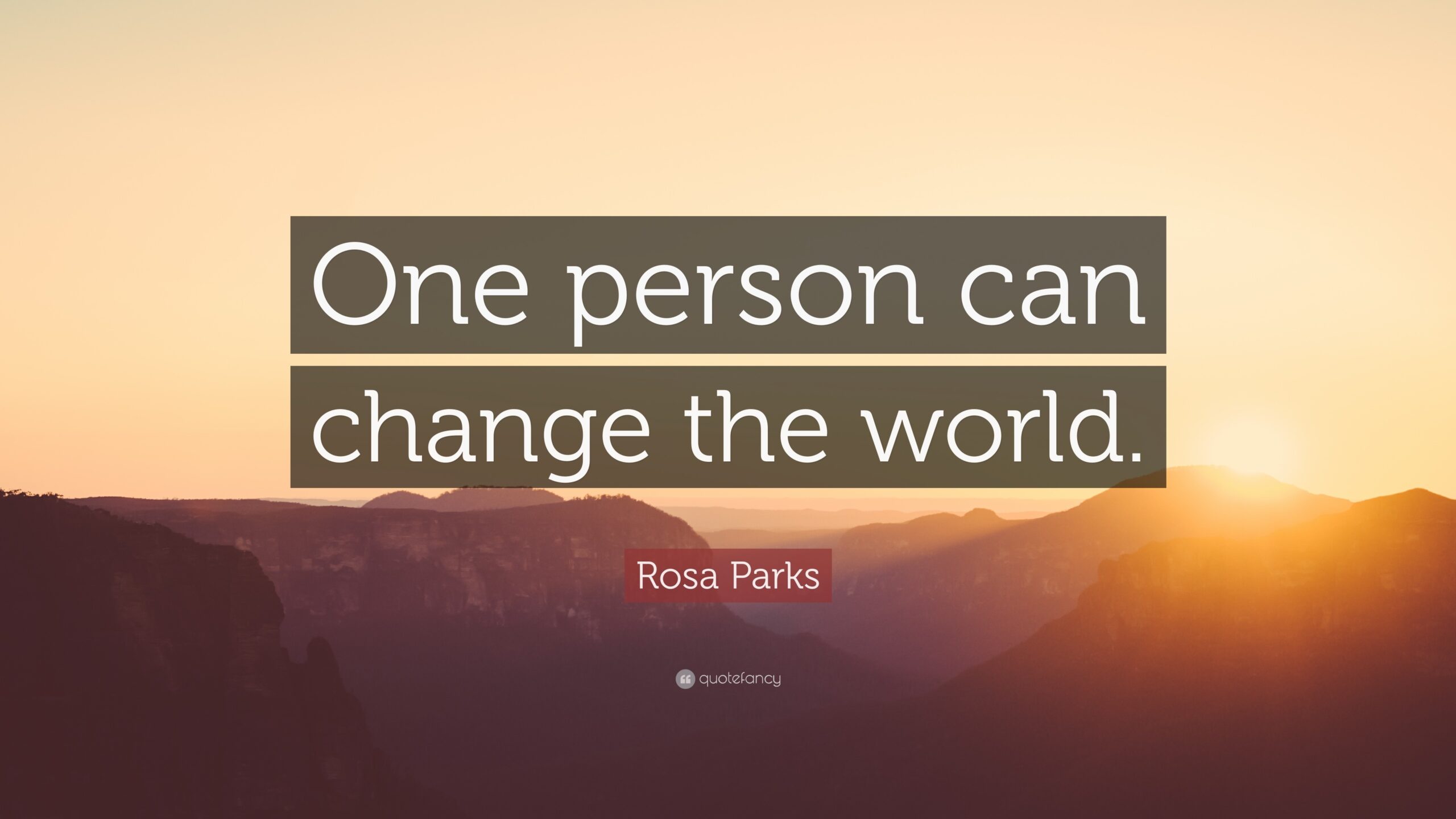In the intricate tapestry of human existence, the notion that “one person can change the world” resonates with profound significance. This belief is particularly celebrated within the Bahá’í Faith, where individual character is esteemed as both a catalyst for personal transformation and a medium through which society can experience metamorphosis. The teachings of the Bahá’í Faith provide captivating insights into the power each individual possesses, emphasizing character development as a foundational element in engendering significant societal change. This discussion will elucidate the multifaceted aspects of individual character as envisaged in the Bahá’í perspective, while also inviting a reflective shift in understanding the implications of personal agency.
The Bahá’í teachings advocate that every individual holds the potential to be an agent of change. Central to this ideology is the belief that humanity is interconnected and that the actions of one can reverberate through the lives of many. Indeed, the ripple effects of an individual’s character—comprised of virtues such as honesty, compassion, and courage—can inspire others, leading to collective advancement. The journey of individual transformation is inherently linked to the progress of society. As individuals cultivate these virtues, they not only enhance their own lives but also contribute to the elevation of the entire community.
One of the pivotal tenets within Bahá’í teachings relates to the concept of unity in diversity. Bahá’ís embrace the belief that diversity is a rich tapestry that contributes to the overall strength of society. Individual character plays a crucial role in fostering an environment where diverse perspectives can coexist harmoniously. A character imbued with respect and appreciation for others can pave the way for understanding and collaboration among disparate groups. This aspect of character development is paramount, particularly in a world rife with division and discord.
The transformative potential of individual character is perhaps best illustrated through the lens of service. The Bahá’í teachings extol the virtues of selfless service to humanity. The emphasis on serving others stems from the recognition that genuine change stems from altruistic actions motivated by a desire to foster the well-being of others. When individuals engage in acts of service, they cultivate a spirit of generosity and empathy, which can invariably inspire those around them to do the same. This collective elevation of character, instigated by individual will, has the capacity to shift societal norms and nurture a culture of compassion.
Moreover, the Bahá’í perspective emphasizes the importance of education in shaping individual character. Education, however, is not confined to mere intellectual acquisition; it encompasses moral and spiritual dimensions that fortify one’s character. An educated individual, grounded in the principles of justice and equity, is better equipped to navigate the complexities of societal issues and contribute meaningfully to community development. Thus, the Bahá’í teachings advocate for a holistic approach to education—one that engenders both knowledge and character, fostering individuals who are prepared to lead transformative initiatives within their communities.
As one delves deeper into the implications of individual character, it becomes apparent that resilience is another integral quality meriting exploration. Life’s adversities can often deter individuals from pursuing their ambitions or advocating for change. The Bahá’í teachings encourage individuals to cultivate resilience, framing challenges as opportunities for growth and learning. Individuals endowed with the strength to persevere against obstacles can galvanize others to confront challenges head-on, instilling a sense of hope and possibility in the face of adversity.
The essence of individual character also encompasses a commitment to truthfulness and integrity. In a world where misinformation and deceit proliferate, the character of an individual fortified by these virtues serves as a stabilizing force. By embodying truthfulness, an individual not only enhances their credibility but also stands as a beacon of integrity that can guide others toward ethical behavior. The ripple effect of such integrity can catalyze environments where honesty is valued, thus contributing to the establishment of a just society.
Furthermore, embracing spiritual practices such as prayer and meditation is paramount in refining individual character. These practices enable individuals to foster a deeper connection to their inner selves and the divine. Through this introspective journey, individuals are often inspired to evolve their character, aligning their actions with higher principles and virtues. Consequently, this spiritual grounding can embolden individuals to undertake courageous acts, fostering a transformation that goes beyond the self and impacts the broader community.
The notion that one person can change the world invites a challenging yet invigorating perspective on the role of individual actions in shaping collective realities. In emphasizing character as a catalyst for change, the Bahá’í teachings present a compelling paradigm that champions personal responsibility and agency. Each person’s journey toward character refinement not only uplifts their own life but also has the potential to leave an indelible mark on the world. As one reflects on the significance of individual character, it becomes evident that the path to a better world commences with the resolve of a single individual committed to embodying virtues that inspire and uplift humanity.
In conclusion, the power of individual character is both profound and transformative. The Bahá’í Faith encapsulates this notion through its emphasis on unity, service, education, resilience, integrity, and spirituality. Ultimately, the teachings elucidate that by nurturing their own character, individuals can effectuate change not only within their own spheres of influence but also throughout the world, creating a brighter and more harmonious future for all.
